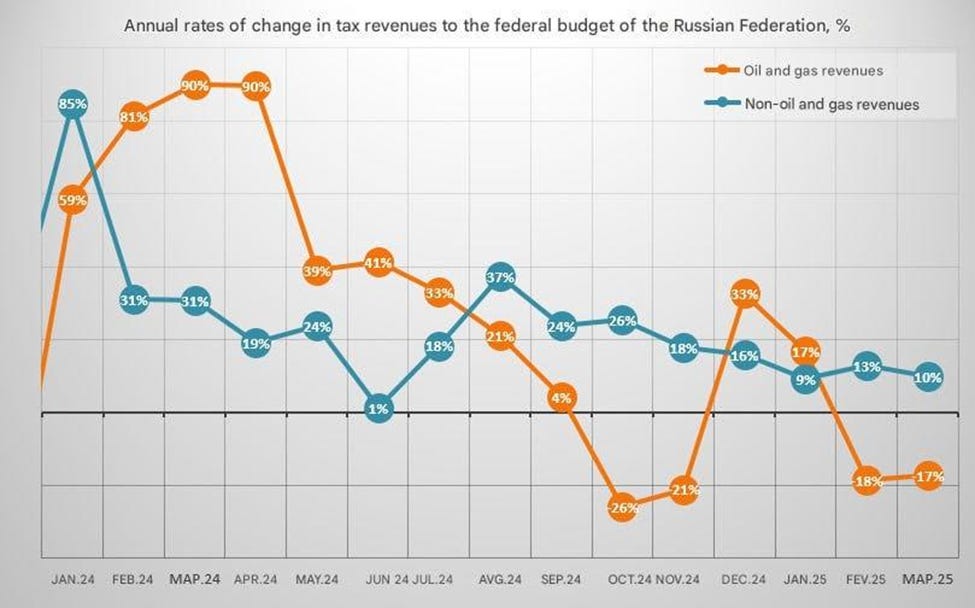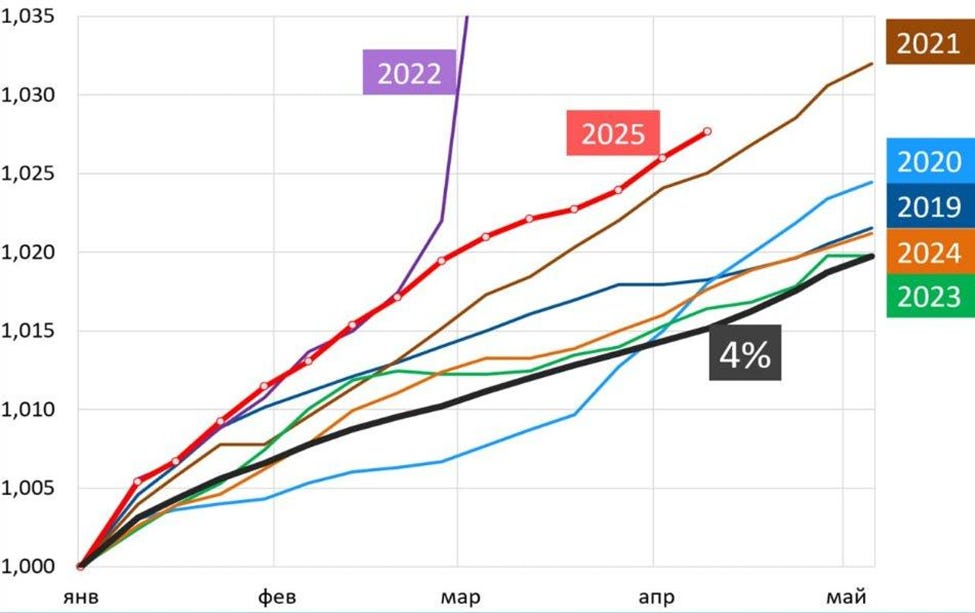(…continued from Part 2…)
***
Kherson
Ukraine destroys two EW vehicles, both Borisoglebsk-2s.
In such cases, please pay attention: it does not matter - indeed: not the least - how much it costs to make such electronic warfare systems. The Russians are ready to pay any price. What does matter, though, is that such systems of the Russian design are largely based on (indeed: possible because of) Western electronics. Therefore, the ‘price’ of such a loss is irrelevant. What is relevant is that the Russians have ever bigger problems with getting the electronics necessary to make new Borisoglebsk and similar systems, and that if they get it, they often have to pay 10x, even 20x more than usually.
500 meters from the Dnieper river, Ukraine bombs a building in Lyubimivka.
***
Unknown Location
Last week, Kreigsforscher of the 36th Marine said their new sector was quiet compared to Kursk. This week he said that in a 20 km long area his drone unit found 44 towed artillery pieces, from 122-152mm, and that it likely won’t be boring soon.
A Russian report of an Mi-24 crash.

***
Russia
Amid Pudding’s announcements of a cease-fire, and the relentless Western babbling about ‘peace’, the number of Russians signing military contracts are at an all time high as people want the enlistment bonus before the war ends. In the first ten days of each month, 341 signed in Moscow during January, 503 in February, 499 in March, and in April it was 993. Moscow and St. Petersburg have the lowest representation in the military and 6,300 people in Moscow have signed contracts in 2025.
Russia had 10.5 million immigrants working in their economy but they are still short of 4.8 million laborers so any loss of workers is significant. They deported 40k people in 2023 and 80k people in 2024 and there are new laws that make it easier to deport immigrants. Even though Russia needs workers, immigrants have been given a choice of deportation or joining the military. Of the 30,000 Central Asians that became Russian citizens, 10,000 were forced into the army. The laws, rise in prejudice and threat of military service may result in some migrants leaving, but so many of them depend on jobs in Russia. Tajikistan has a population of 10.8 million people. 51% of its GDP comes from laborers outside the country sending money home. If all 800,000 workers from Tajikistan left Russia then the country would be economically devastated.
The high cost of business loans means there is little profit in sales. The lack of spending on infrastructure means companies that provide infrastructure are making no sales. Hospitals outside the Moscow region aren’t being built and 160 hospitals were shut down. This report gives examples and talks about the cost of doing business with the government.
Russia has been spending more money that it takes in. It has a choice of cutting spending (military and/or civilian social programs) or increasing its debt. Since the war is prioritized over civilian well-being, it is likely that civilian suffering in the form of high prices, reduced healthcare and deteriorating infrastructure will continue to increase, especially since 80% of the weapons purchases in 2025 have been paid for. One-third of the Russian budget depends on oil and gas revenues and the budget was based on a barrel of oil costing $70. As the price of oil falls the rate of civilian suffering will increase.
A report on the state of the Russian economy back in January. In Russia’s plan for energy until 2050, they expect oil exports to fall by 70%, gas exports to rise by 3-5 times, and coal exports to rise from 207 tons to 295-350 tons.
The numbers reflecting the recent plunge in oil prices haven’t been factored into these charts so Russia’s current and projected revenue situation is trending worse.






There was an explosion and fire at a substation in Orenburg a kilometer from the thermal power plant. No drone activity was reported.
The top Turkish oil refiner was one of the largest buyers of Russian crude oil, which accounted for 65% of all Turkish oil imports in the first 11 months of 2024. It stopped buying oil at the beginning of 2025 due to tougher US sanctions but is now buying the oil again because of the low prices.
***
(…to be concluded in the Part 4…)




Regarding the destruction of EW systems. The price probably doesn’t matter, but does taking out such systems affect the battlefield conditions?
"and that if they get it, they often have to pay 10x, even 20x more than usually."
What a nonsense, sorry for stating that.
Could be 2,3,4 times more, but 10?
Do not forget that most of electrinonics are taken from China, with double price at worst.